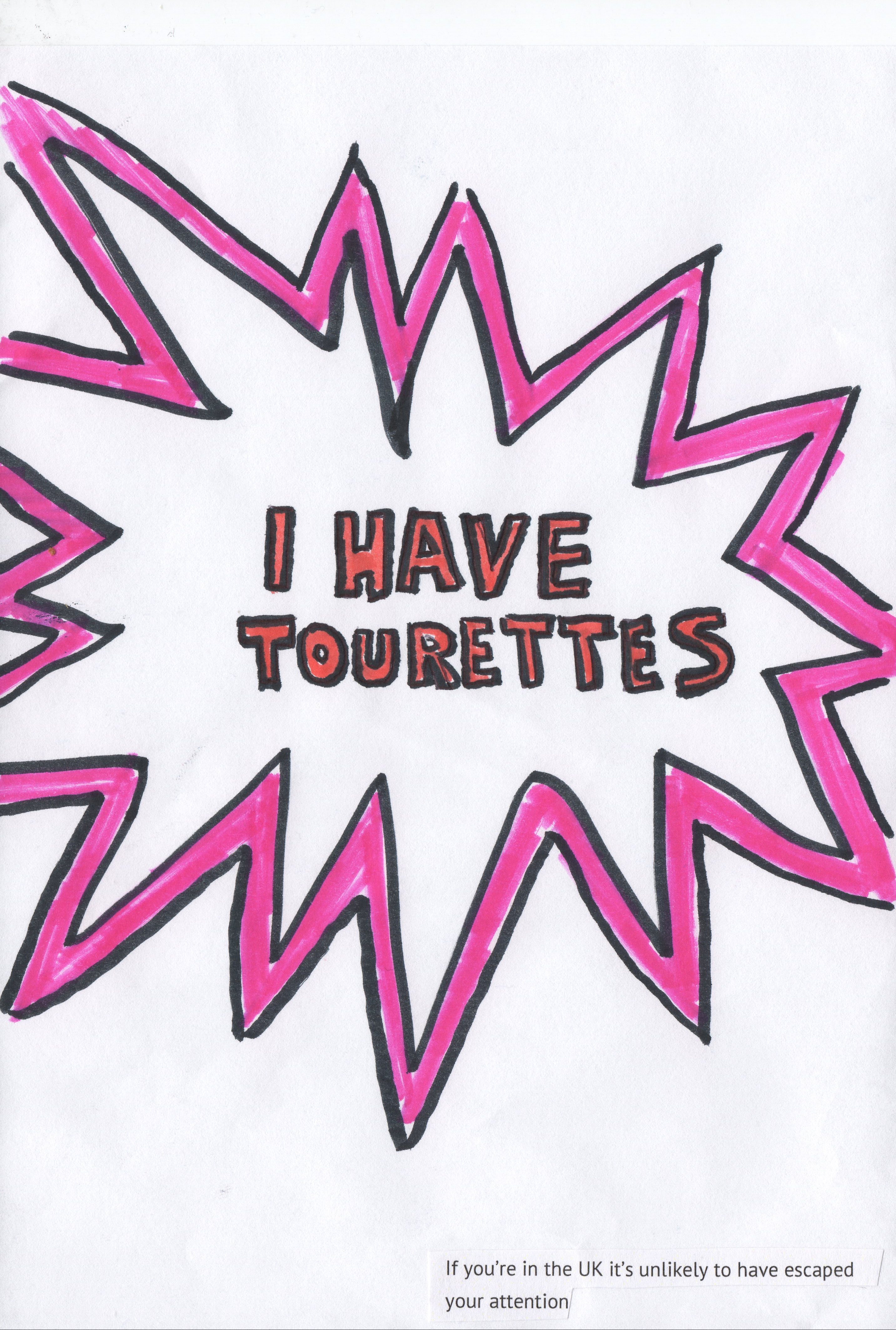Many of you might be aware of the joke that won ‘joke of the year’ at the Edinburgh Fringe Festival last year. For those who are not, it goes a little something like this:
“I keep randomly shouting out ‘Broccoli’ and ‘Cauliflower’ – I think I might have florets”
Now don’t get me wrong, I’ve laughed at my tics before, I’ve even laughed at others’ (though I’d like to add that this was all out of love). However, much like Jess Thom states in response to this joke, I am ‘tired’ of Tourettes being used for cheap gags. I completely understand that humour can be a great way of educating people, however not only have people found this joke offensive, but also in my opinion it’s not really that funny as a joke itself (I feel sad for the quality of comedy that exists to make this the supposed height of comedy at Edinburgh Fringe this year…)!
It’s no secret that disability, notably tourettes, has been used as the brunt of many jokes by comedians, tourettic and non-tourettic alike, but the real question here is as follows:
“Is it okay to use Tourettes Syndrome for comedic purposes?”
It’s hard for me to give a short and concise answer, but I’ll do my very best (there’s a reason I have blog as opposed to just tweeting)! What it all boils down to for me is the context of the joke.

Above, you can see a piece from previous research into Tourettes Syndrome and post-phenomenological geographies (see here for more context). Evidently, the creator has used comedy in this zine piece to make a point about the fact that due to the very vocal nature of their tics, it becomes very clear to others that they have Tourettes Syndrome. So what’s the difference between the ‘joke of the year’ aforementioned, and this? The main thing is context.
The key issue with this is that Olaf Falafel, the comedian in question, does not have Tourettes. An illustration of why this is problematic stems from some interesting history about the use of memes that are related to disability. Over the last decade, memes have been used in a variety of ways and many of them are entirely problematic. Three examples of this, as discussed by Hermans (2004) include (1) the charity case; (2) the inspirational meme; and (3) the cheat meme…
Charity case memes are those that exist only in order to show support for a cause performatively – for example, a company could post a meme about accessibility and how important it it, but then not follow through in the workplace. This gives the illusion that it is a cause the organisation cares about, but in reality what they care about is appearing good from a branding perspective. It’s a bit like the digital version of having recycling bins in that fast-food chain that just get thrown in with the general trash in the back alley anyway. These memes also allow for the performative support of causes by other social media users – does that individual really support Black Lives Matter or are they just reposting it onto their Instagram story because everybody else is…? It’s clear to see the issue with these memes.
Inspirational memes are another big issue. Have you ever come across a meme that reads something like: ‘what’s your excuse?’ placed on top of an image of a female amputee running? This is a meme that makes use of somebody who is disabled, in a way that might boost their own business, even if the ‘business’ in question is a charitable organisation. This is commodifying the disabled body, for the benefit and inspiration of those who are able-bodied. Again, this is not acceptable.
And lastly we have the ‘cheat’ meme, which often depict those with disabilities as scroungers, tricking a capitalist system into getting welfare benefits. They might read something a little like ‘Being fat is not a disability’. This is the most outright and explicitly unacceptable meme kind that impacts the disabled.
So where does Falafel’s Joke of the Year come into play here? Maybe you’ve made the connection already, but just like all of these meme-types that I’ve mentioned, this joke uses a disabled population (the tourettic community), whilst serving to benefit an able-bodied population exclusively. It may not serve to provide inspiration to run a marathon, or to explicitly slander those with tourettes, but the capitalist commodification of disability is the underlying issue here.
However, on a more positive note the tourettic community have been fighting back and creating memes of our own as a form of resistance. Many without TS don’t understand the jokes, and can not currently (and may never) relate to them, but that is precisely what makes these memes a political act of resistance. We have been using our own diagnoses to produce memes that are for our community; memes by tourettics, for tourettics, to put it in short.
You might be asking, where do we go from here? I’d suggest that going forward, you take notice of the memes that you interact with. Are they ableist? If you don’t know, why not ask a disabled pal of their opinion? What is the intention, and is it offensive? Why are you interacting with this meme? What more can you do that like or share a post to benefit the cause in question? These are all things you could consider to ensure that you’re a better ally to your disabled pals. But perhaps, and most importantly of all, we should be challenging commercial and entertainment giants like E4 about the impact and ableist joke that they’ve awarded the title of Edinburgh Fringe Festival’s Joke of the Year back in 2019…
